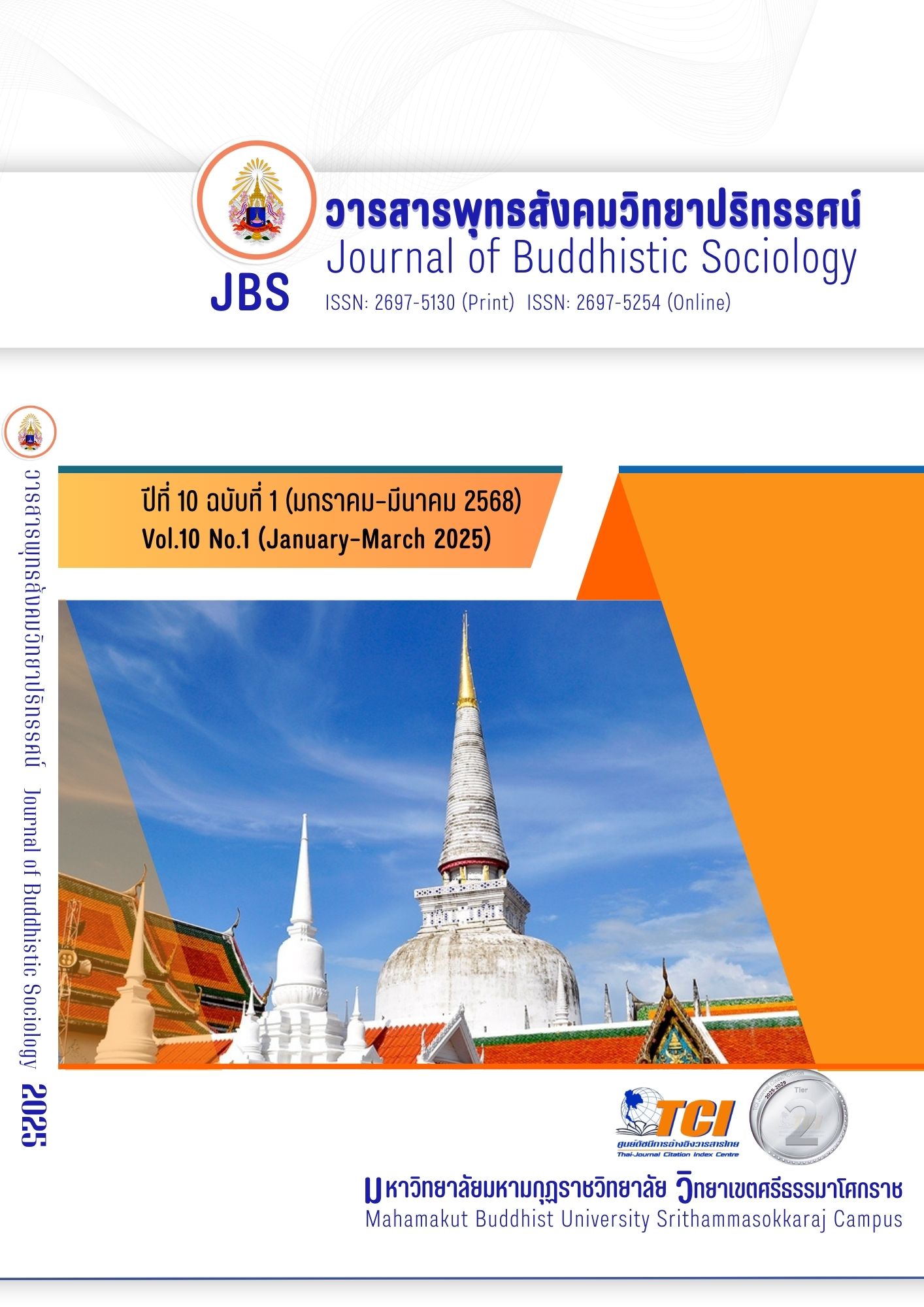RIDPA MODEL: การออกแบบการเรียนรู้ ที่ผสมผสานระหว่าง DESIGN THINKING กับ ADDIE MODEL
Main Article Content
Abstract
This article explores the integration of Design Thinking and the ADDIE Model to develop a framework for designing learning experiences by synthesizing both approaches. The aim is to provide a fresh perspective in instructional design, drawing key insights from both methodologies. The RIDPA Model emerges as a pivotal concept consisting of 1) Realize: understanding learners deeply,
2) Instructional objective: setting clear learning goals, 3) Design: designing learning management strategies, 4) Prototyping: creating a learning plan model, and 5) Assessment: holistic assessment and development evaluation. The RIDPA Model can help design learning experiences tailored to learners and enhance efficiency in learning management.
Article Details

This work is licensed under a Creative Commons Attribution-NonCommercial-NoDerivatives 4.0 International License.
References
Almelhi, A. M. (2021). Effectiveness of the ADDIE Model within an E-Learning Environment in Developing Creative Writing in EFL Students. English Language Teaching, 14(2), 20-36.
Boonchothirun, P., (2021). Developing Chinese instructional process by integrating inquiry approach and social constructivism to enhance Mathayom Suksa Five students’ Chinese character writing and ability to explain vocabulary. In Thesis for the Doctor Degree of Education in Curriculum and Instruction. Burapha University.
Chaichuai, K., Chaichuai, K., & Intanam, N., (2023). The Development of Innovative Thinking Skills by using Research-Based Learning Management for Innovation of Mathayom Suksa 4 Students at Somdejphrayansangworn School in Patriarchal Patronage. Ubon Ratchathani Journal of Research and Evaluation, 11(2), 10-20.
Chittep, P., et al. (2021). The Developmentof Social Innovation Creative Ability in Geography Using Design Thinking Process for Mathayom-Five Students. Journal of Roi Kaensarn Academi, 6(10), 78-93.
Chobphon, et al. (2020). Learning styles. Journal of Psychology Kasam Bundit University, 10, 103-110.
Gerstbach, I. (2016). Design Thinking in Unternehmen. Gabal Verlag.
Junwandee, K. (2017). The Development of Learning Activities on “Principles of Computer Project Work” of Information and Communication Technology Subject for Mathayom Suksa 3 Using ADDIE MODEL Integrated with Backward Design. In Thesis of the Degree of Master of Education in Curriculum and Instruction. Sakon Nakhon Rajabhat University.
Lewrick, M. Link, P. and Leifer, L. (2020). The Design Thinking Playbook. German: John Wiley and Sons, Inc.
Lor, R. (2017). Design thinking in education: A critical review of literature.
Meinel, C., & Krohn, T. (2022). Design Thinking in Education. Design Thinking in Education: Innovation Can Be Learned, 1-6.
Noipinit, P., Supap, W., & Klineam, C. (2019). An Action Research on Developing Learning Management in the topic of Conic Sections using Design Thinking Process to enhance Creative Problem Solving Competency of Students in Grade 10. Journal of Rangsit University: Teaching & Learning, 13(1), 70-84.
Office of Education Council. (2022). Thai education report 2022. Bangkok: Prikwarn graphic.
Panich, V., (2020). Teacher for students Create learning to a connected level. Bangkok: Siam Com mercial Foundation.
Pittayasenee, M., & Yuangsoi, P., (2019). Design thinking: New era innovator teachers. Lampang Rajabhat University Journal, 10(2), 190-199.
Reeves D. (2011). 21st Century Skills Assessment Framework. In 21st Century Skills: Rethinking How Students Learn. Bangkok: Openwords.
Rojsangrat, P., (2016). Development of an instructional model using design thinking to create Thai product identity for undergraduate students. In Thesis for the Doctor Degree of Philosophy in Art Education. Chulalongkorn University.
Saputro, N., Haenilah, E. Y., & Adha, M. M. (2022). The development of a problem-based learning design model to improve students' communication skills.
Silatejoand, P., & Vilasinee, T. (2022). Trends in social studies teaching design in the 21st century. Journal of MCU Ubon Review, 7(2), 245-258.
Spatioti, A. G., Kazanidis, I., & Pange, J. (2022). A comparative study of the ADDIE instructional design model in distance education. Information, 13(9), 402.
Sukhum, C.,& Vanichwatanavorachai, S. (2023). Competency-based Learning Design: Concepts, Instructional Design and Learning Evaluation. Research and Development Journal Suan SunandhaRajabhat University, 15(1), 65-78.
Thai government gazette in Thai. (2022). National Economic and Social Development Plan No. 13 (2023-2027). Bangkok: The Secretariat of the Cabinet.
Watthanathum, C. (2022). Development of an Active Learning Instructional Competencies Model for teachers in The Bangkok Metropolitan Administration. Journal of Interdisciplinary Research and Educational Innovation, 1(1), 43-56.


